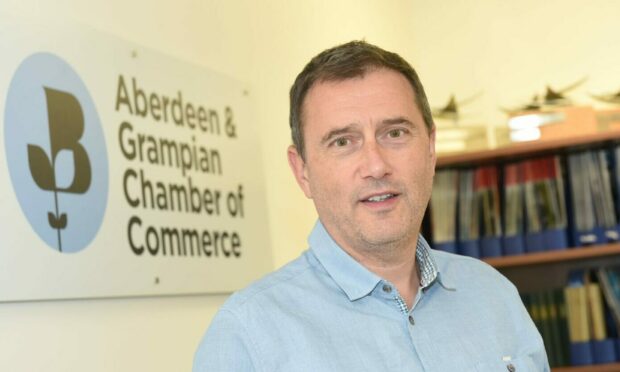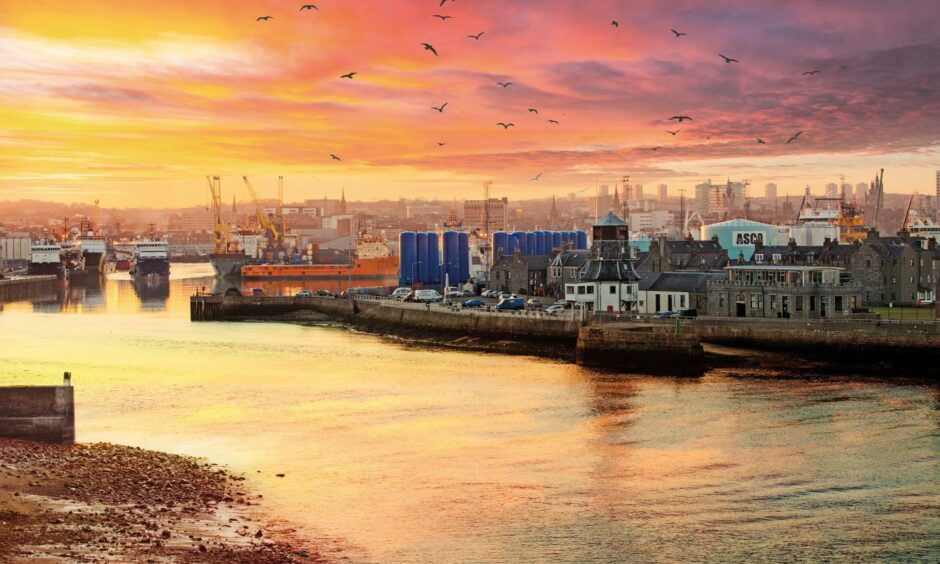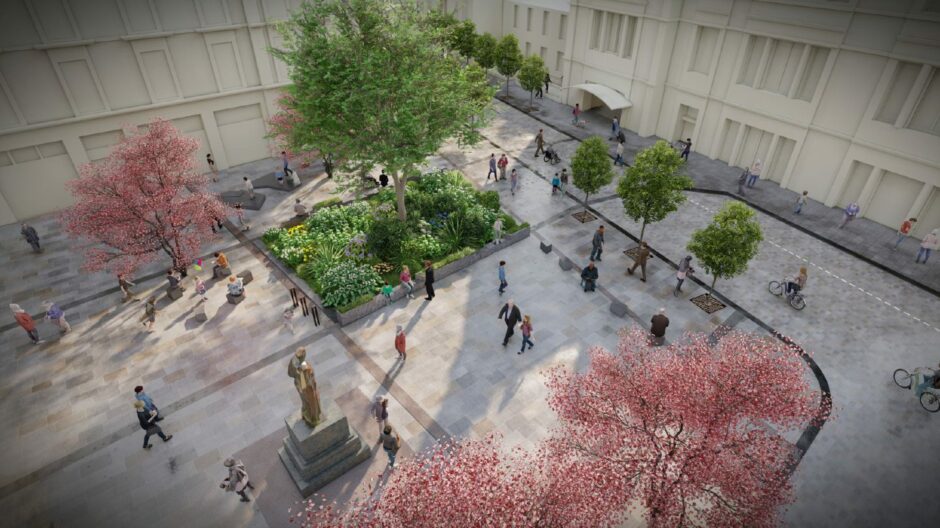The votes are in and the people have decided who they want to lead our region for the next five years.
It will be a critical period for the north-east, and employers want bold leadership from local authorities to create the business environment needed to help the region flourish.
Decisions taken in the coming months will set the course for how we recover from the pandemic, create the conditions urgently needed for growth and enterprise, realise the potential of our city and town centres, and ensure the necessary investment and infrastructure is in place to support these challenges.
Our collective mission is to transform Aberdeen and Aberdeenshire into the net-zero energy capital of Europe, while diversifying our economy, building on other key sector strengths in tourism, life sciences, food, drink and agriculture, and digital and creative.
Ambition is nice but delivery is everything. So, governments and opposition parties at all levels – local, Scottish and UK – must work together, in a true partnership, to create the conditions that will allow the private sector to take the lead on delivering this vision.
There is no room for complacency, half measures, hollow gestures and political dogma. We are all in this together.
Ambition is nice but delivery is everything. Governments and opposition parties at all levels – local, Scottish and UK – must work together, in a true partnership.”
Our newly-elected councillors will have bulging inboxes, but there are three things which should be prioritised by the administrations in Aberdeen and Aberdeenshire.
Firstly, we need councillors to push for meaningful and ambitious reform of business rates to stimulate enterprise as we enter post-pandemic recovery and look to the future.
The way we do business has changed over time and so too must the way firms are taxed.
A new system should reflect changing property needs and usage, and incentivise new businesses to emerge and grow in our towns and cities.
Immediate action on rates
In the immediate term, we need to maintain rates relief for the sectors hit hardest over the past two years, redress the fact rateable values were already too high in the north-east before the pandemic, and conduct forthcoming revaluations in a transparent manner which reflects fair value, based on an average rate over the past decade.
Secondly, we need a real focus on our town and city centres, which are finely balanced eco-systems of retail, culture, hospitality, residential and offices, with people at their heart.
If any of them are out of balance, the others are likely to fail.
Even before the crippling impact of pandemic response, UK high streets and town centres were being hit hard by the perfect storm of out-of-town retailing and workplaces, the rise in online shopping and other changes in consumer behaviour.
Successful cities have been countering these trends with successful strategies to create exciting, cool, attractive multifunctional places for people to live, work and spend their leisure time.
Phase one of the Aberdeen City Centre Masterplan has delivered strongly against these objectives, resulting in a number of hugely exciting additions to our public realm.
Now it’s time for the next set of projects, including the international market, beachfront transformation and new community sports stadium, with imaginative travel and transport plans at the heart of it all.
These developments are fundamental to the future success of our city region so there is no room for pettiness preventing the vision from being turned into reality.
Although impressive in their own right, the real value of such publicly-funded schemes is for them to become a catalyst for private sector investors to undertake other ambitious projects.
Planning must be ‘less confrontational’
Specifically, it must be made easier for developers to apply for change of use and bring back to life unused buildings and other estate.
Planning needs to be more collaborative and less confrontational. Investors need certainty and pace to give them the confidence to proceed. Without this, they’ll simply take their cash elsewhere.
This is also why we need to see an urgent end to all government work-from-home messaging and a renewed focus on drawing workers back to offices and our city centres.
Some of what we have learned from this crazy pandemic period in history will stick, for sure.
But let’s not force fundamental change in the way we live, work and relate to one another on the back of what was purely meant as an emergency response – not some giant social experiment to unpick a largely effective modus operandi built up over decades.
We need employers to be brave in resisting the temptation to make these changes permanent.
‘Negative impacts’
In some cases, remote working can be good for employer and employee, however, most of the feedback we get from members tells us this is not the case.
Fraser of Allander Institute research found 60% of employers reporting negative impacts on their productivity, innovation and collaboration.
Being remote from colleagues has made teamworking and building much more difficult.
On-screen meetings are functional and enable information exchange, but they are two dimensional.
Remote working can be good for employer and employee, however, most of the feedback we get from members tells us this is not the case.”
The third dimension – the buzz of the office, face-to-face creative meetings, sharing experiences as the kettle boils, overhearing things that you can help with, on-the-job problem-solving – has been badly missed.
So too has our ability to build strong, long-term internal and external customer relationships, and provide meaningful staff engagement and development, especially for our young people.
Offices are a vital part of our town and city centre economies and without the return of the associated footfall, the businesses that support these workers are being placed under an existential threat that is already leading to permanent closures and job losses.
The past two years have far too often seen business and governments locking horns.
It’s time to reset that relationship and work together, in partnership and aligned to the same common purpose. This is the only chance we have of achieving our ambitions.
Russell Borthwick is chief executive of Aberdeen and Grampian Chamber of Commerce.






Conversation